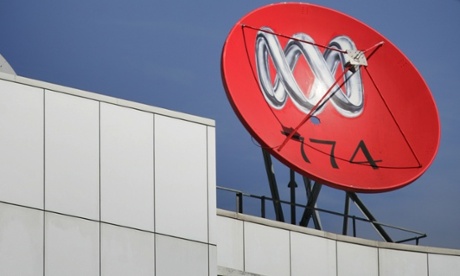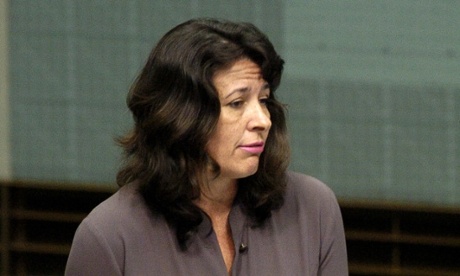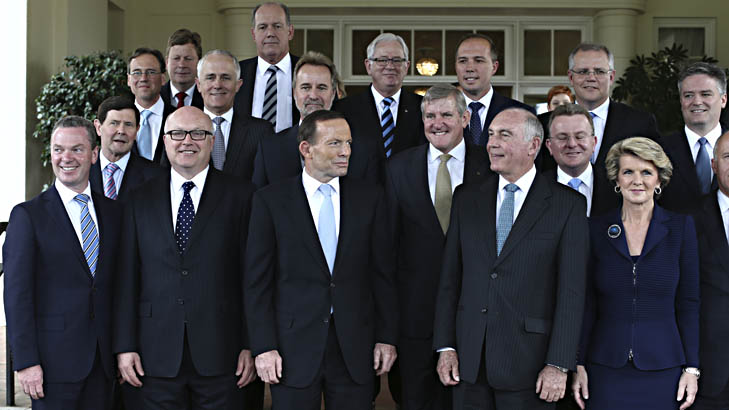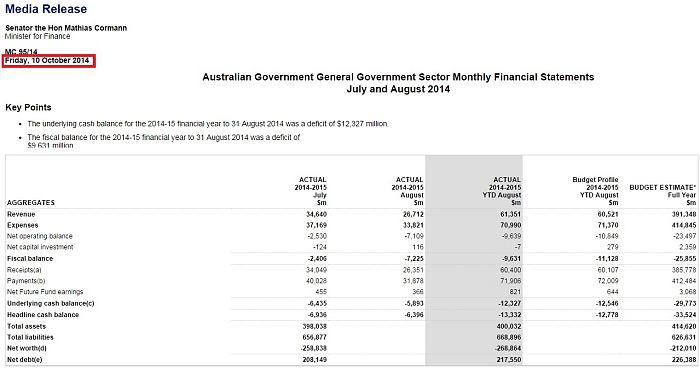ABC board criticises Abbott government in annual report
Directors led by chairman James Spigelman accuse Coalition of breaking election promises by cutting broadcaster’s budget

ABC directors also claimed, at $120 per household per year, the ABC provided value for money.
Photograph: Andrew Henshaw/AAP Image
The ABC board has used its annual report to make a pointed statement
about the Coalition’s broken pre-election promise not to cut the budget
of the public broadcaster.
ABC directors also claimed at $120 per household per year the ABC
provided value for money and was 2.5 times cheaper than a basic pay TV
subscription ($300).
“The full suite of service – radio, television and digital, both
domestic and international – costs roughly $120 per household per year,”
they said.
The board has also accused the government of cutting an additional
“several million dollars” by stealth – on top of the 1% cut and the
termination of the Australian Network contract.
“The amount appropriated was fixed without any consultation with the
ABC,” the directors said. “It was several million dollars less than the
amount required. The difference, which will be determined when the
redundancy process is complete, represents a further cut.”
The statement by the board directors, led by chairman James
Spigelman, expressed “profound disappointment” at the government’s
action and said they had been “short-sighted” in terminating the funding
for the Australia Network.
“The board was disappointed that, contrary to pre-election statements
made by the prime minister, the 2014-15 budget, handed down in May,
included a 1% reduction in the corporation’s base funding,” the note in
the annual report, tabled in parliament on Friday, said.
“The minister for communications, the Hon. Malcolm Turnbull MP,
described this cut as a ‘down-payment’ on future funding reductions. In
addition, the government announced it would terminate the contract
between the ABC and the Department of Foreign Affairs and Trade (Dfat)
for the operation of the Australia Network Service.
“Together, the announced cuts will amount to a budget reduction of
$120m over the next four years. The ABC has commenced a detailed program
of work to examine the best way of meeting these and anticipated
further funding cuts, including a fundamental re-organisation of its
international service.”
The ABC board is waiting for the government’s expenditure review
committee to tell them how much extra money they need to cut from the
$1.1bn budget, which has already lost $120m over four years.














